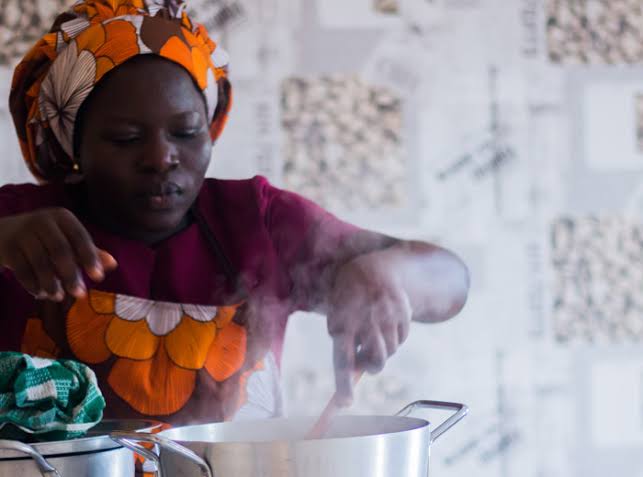
Cooking on a budget in Nigeria is a common concern for many households, as food prices can be quite high, and income may not always keep up with rising costs. However, with some creativity, planning, and smart shopping, it is possible to prepare nutritious, delicious meals while still staying within a limited budget.
Due to the current situation of things, particularly in Nigeria, Nigerians are forced to deal with this in their ways. A lot of people are trying, by all means, to minimize by every possible means.
One of the ways by which Nigerians minimize spending is on food. Now, don’t get me wrong. The economic downfall of the nation does not mean one should not eat nutritious and healthy food. This article is mainly to help shed more light on how you can prepare these nutritious and healthy foods, yet, on a budget and very affordable.
Nigeria is known for its rich culinary traditions, with diverse and flavorful dishes that reflect the country’s cultural heritage and regional variations. Local ingredients such as rice, beans, yams, plantains, and a variety of vegetables and spices are staples of the Nigerian diet and can be used in a range of recipes to create satisfying meals.
In this article, we will explore some tips and strategies for cooking on a budget in Nigeria, including ways to save money on groceries, ideas for meal planning and preparation, and recipes that are both tasty and affordable.
Whether you are a student, a family on a tight budget, or simply looking to save money on your food expenses, these tips will help you eat well without breaking the bank.
Budget Cooking in Nigeria
Cooking on a budget in Nigeria can be challenging, but it is possible with some smart planning and creativity. Here are some tips for cooking on a budget in Nigeria:
Plan your Meals
Before heading to the market, plan your meals for the week. This will help you to buy only what you need and avoid unnecessary purchases.
Buy in Bulk
Buying food items in bulk can be cost-effective, especially for non-perishable items like rice, beans, and garri. You can also save money by buying perishable items in bulk and freezing them for later use.
Shop at Local Markets
Local markets are usually cheaper than supermarkets, and you can negotiate prices with the sellers.
Use Cheap Protein Sources
Meat and fish can be expensive, so consider using cheaper protein sources like beans, lentils, and eggs.
Cook from Scratch
Pre-packaged and processed foods are often more expensive than cooking from scratch. Learning to cook Nigerian dishes from scratch can save you money in the long run.
Use Cheaper Cuts of Meat
If you do decide to cook meat, opt for cheaper cuts like beef shank or chicken drumsticks, which are more affordable than steaks or chicken breasts.
Incorporate more Vegetables
Vegetables are generally cheaper than meat, and they can be just as filling and nutritious. Consider adding more vegetables to your meals to save money.
Cook in Bulk and Freeze
Cooking in bulk and freezing leftovers can help you save time and money in the long run. You can portion out meals and reheat them for later use.
Use Cheaper Cooking Methods
Cooking with cheaper methods like boiling, steaming, or stir-frying can save you money on electricity or gas.
Avoid Food Waste
Finally, try to avoid wasting food as much as possible. This can help you save money and reduce your environmental impact. You can use leftovers to make soups or stews or freeze them for later use.
Benefits of Cooking on a Budget as a Nigerian
Cooking on a budget has many benefits for Nigerians. Here are some of them:
Saves money: Cooking on a budget means you are more mindful of how you spend your money. You can plan your meals ahead of time and buy only the necessary ingredients. This helps you save money in the long run.
Healthier meals: Cooking on a budget often involves using fresh ingredients and cooking from scratch. This means you can avoid unhealthy processed foods and cook more nutritious meals.
Reduces food waste: When you plan your meals ahead of time, you can buy only what you need and reduce food waste. This not only helps you save money but also reduces the impact of food waste on the environment.
More variety: Cooking on a budget can also be a chance to try out new recipes and ingredients. You can experiment with different flavors and cooking techniques to make your meals more interesting and enjoyable.
Teaches valuable skills: Cooking on a budget requires you to be creative and resourceful in the kitchen. This can help you develop valuable skills that will serve you well in the future.
Builds community: Cooking on a budget can also be a chance to share meals with friends and family. You can organize potlucks or cooking sessions where everyone contributes to the meal, making it a fun and social activity.
Conclusion
In conclusion, cooking on a budget doesn’t have to mean sacrificing flavor or nutrition. With a little planning, creativity, and some smart shopping, it is possible to eat delicious and healthy meals without breaking the bank.
Some tips for cooking on a budget include planning meals, buying in bulk, using cheaper cuts of meat, incorporating more plant-based proteins, and utilizing leftovers. It’s also important to be mindful of food waste and to find ways to repurpose or freeze leftovers for future meals.
Additionally, learning basic cooking techniques and experimenting with spices and herbs can help add variety and depth to meals without spending a lot of money on pre-packaged seasonings.
Ultimately, cooking on a budget can be a fun and rewarding challenge that encourages resourcefulness and creativity in the kitchen. By taking a proactive approach and making smart choices, anyone can enjoy delicious and satisfying meals without breaking the bank.




